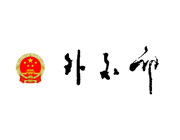


African Members of FOCAC
- Algeria
- Angola
- Benin
- Botswana
- Burkina Faso
- Burundi
- Cabo Verde
- Cameroon
- Central Africa
- Chad
- Comoros
- Congo
- Cote d'Ivoire
- Congo(Kinshasa)
- Djibouti
- Egypt
- Equatorial Guinea
- Eritrea
- Ethiopia
- Gabon
- Gambia
- Ghana
- Guinea
- Guinea-Bissau
- Kenya
- Lesotho
- Liberia
- Libya
- Madagascar
- Malawi
- Mali
- Mauritania
- Mauritius
- Morocco
- Mozambique
- Namibia
- Niger
- Nigeria
- Rwanda
- Sao Tome and Principe
- Senegal
- Seychelles
- Sierra Leone
- Somalia
- South Africa
- South Sudan
- Sudan
- Tanzania
- Togo
- Tunisia
- Uganda
- Zambia
- Zimbabwe
- The Commission of the African Union
Nigeria
(Updated March 2018)
【Official Name】Federal Republic of Nigeria
【Area】 923,768 k㎡
【Population】 190 million. Nigeria has more than 250 ethnic groups, the largest being the Hausa Fulani in the north (29% of the total population), the Yoruba in the west (21%), the Igbo in the east (18%). The official language is English. The main ethnic languages are Hausa, Yoruba and Igbo. 50% of the population is Muslim, 40% Christian and 10% other.
【Capital】Abuja. The capital officially changed from Lagos in December 1991. The population is 2 million. The highest temperature on average is 34 to 37℃, and the lowest temperature on average is 20℃.
【Head of State】President Muhammadu Buhari
【Geography and Climate】Located in the southeast of West Africa, Nigeria borders Cameroon to the east, Chad to the northeast over Lake Chad, Benin to the west, Niger to the north and the Gulf of Guinea of the Atlantic Ocean in the south. Its borders are 4,047 kilometers in total length and the country has a coastline of 800 km. The land slopes downward from north to south. With many rivers in the country, Nigeria has a tropical monsoon climate, and can be divided into dry and rainy seasons, with average temperature of 26 to 27 ℃.




